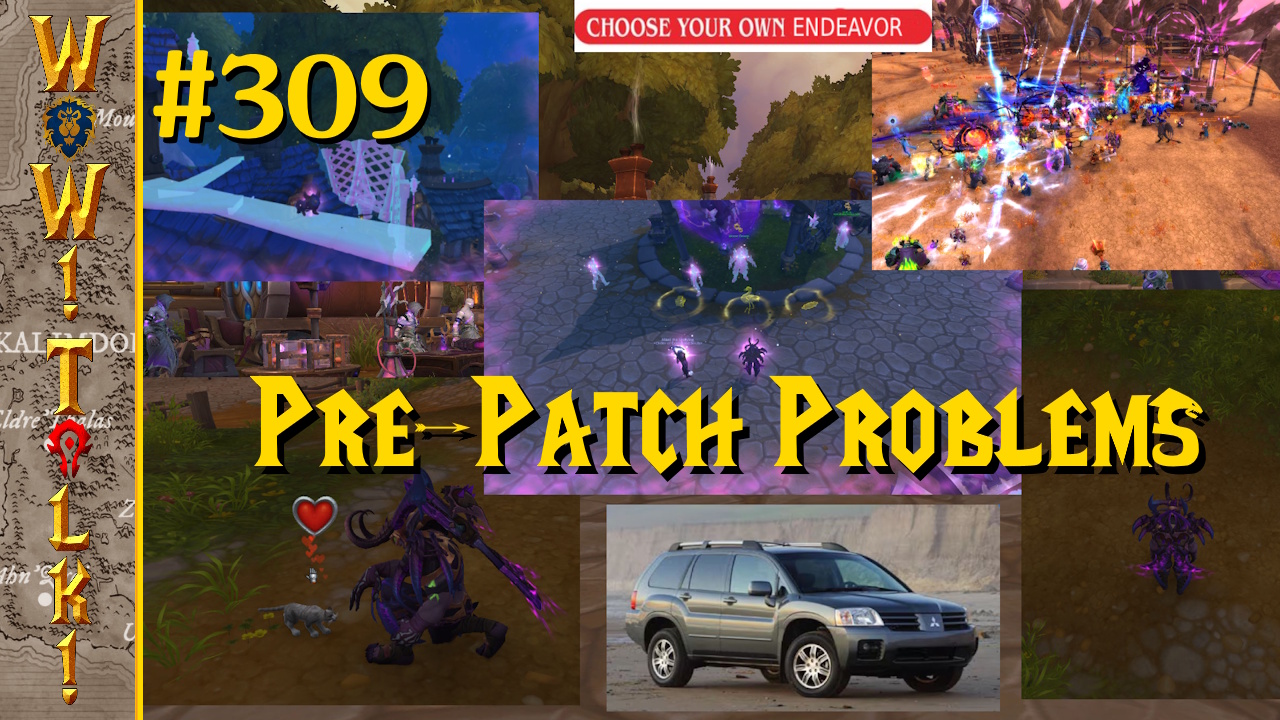 Point-and-click adventures often live and die by their stories. While some of them make small innovations that are a little more involved and interesting, the story being pushed forward is still the meat of the game. Cognition: An Erica Reed Thriller attempts to play it safe by trying to be strong in both areas, but doesn’t really succeed. There are a handful of good ideas that breathe new life into the genre, but for the most part the game gets bogged down with its one-dimensional characters and snail-paced plot. Being the first game in a series, I’m hoping it’s just because of all of the character and concept introductions it has to do, but that still doesn’t change the fact that this episode isn’t doing much to make me want to play the others.
Point-and-click adventures often live and die by their stories. While some of them make small innovations that are a little more involved and interesting, the story being pushed forward is still the meat of the game. Cognition: An Erica Reed Thriller attempts to play it safe by trying to be strong in both areas, but doesn’t really succeed. There are a handful of good ideas that breathe new life into the genre, but for the most part the game gets bogged down with its one-dimensional characters and snail-paced plot. Being the first game in a series, I’m hoping it’s just because of all of the character and concept introductions it has to do, but that still doesn’t change the fact that this episode isn’t doing much to make me want to play the others.
I wish I could like the game more because I really liked Erica Reed herself. She is a strong, capable woman in an industry that mostly confuses the word ‘woman’ with ‘fetish porn star.’ She also doesn’t lean too far in the other direction, which is just as common of a problem. She can be gruff, but also friendly and warm. She has psychic powers that make the game a bit more involved, but she’s clearly uncomfortable having them and talking about them. I could start to guess what she would do in any given situation since she was a fully realized character. I’m not saying she was predictable, just that her behaviors meshed in the way a real human being’s would.
The rest of the cast seems to have suffered as a result, giving you a constant parade of stereotypes and one-dimensional characters. The police chief is hard nosed to the point of being needlessly rude and angry all the time. I don’t think there was ever a time when she wasn’t being cranky, even in old documents about a girl that seemed to have committed suicide. The coroner was even worse—I had to go through a whole sequence just to steal a tape recorder from her, since she wouldn’t let me borrow it to solve a murder. Beyond them you had the tech geek, the smitten guy, a useless partner, and the kind old woman. None of them were fleshed out at all, and it felt like many of them were just sounding boards who existed so that Erica could give more exposition without talking to herself. I’m hoping that since this is the first episode that they’ll be given more depth in later parts, but for now there’s not much to see.

Like the coroner with the tape recorder, many of these characters were being needlessly difficult to pad the game’s length. I know this is part and parcel with the point-and-click genre, but there are a lot of games that don’t make it as obvious. At one point I had a homeless man in for questioning, and he complained that he was hungry. I tried to give him the box of doughnuts that I was holding, but apparently that wasn’t what he wanted. He needed a bag of chips from upstairs, which was an item that I had specifically not been allowed to purchase before that point. I had picked up coins from a desk only a few feet from a vending machine, and given the detail on the machine I knew I’d have to get something from it, but the game waited until that point until I was allowed to buy the stupid chips.
While I admit that having psychic powers makes a game less realistic, I’d argue that having to run around for ten minutes to grab a bag of chips while a man waited downstairs for questioning was far more ridiculous. In that same sequence I had to leave and drive across town so I could learn a new psychic ability to use on him, too, and then drive to another location to pick up an item I needed after that. Every few sentences this guy would give me a hard time about something and I’d have to run all over the game to get what he needed. Again, old point-and-click games have always had stuff like this in them, but it completely threw off what little sense of immersion I had for the game. I don’t mind wondering about what items I need for certain people, but can I at least get through a single conversation without having to leave and get three or four other items?
Thankfully, the items weren’t that difficult to locate as the game has a handy item location system. Instead of forcing you to poke around every patch on the screen, you can hold down a button and it will show you everything you can interact with. This helped me out a lot, as it sped up many sequences where I might have been clicking around for twenty or thirty minutes. Given how often this game gave in to many of the other old habits of point-and-click games, it was refreshing to see something that sped up the process. It allowed me to stay engaged with the plot when I could have been wasting my time clicking around a room.

Another neat thing they did to make my life easier was to add in a hint system. There is a button you can press on your phone to bring up a help line of sorts where Erica can call her police officer father and ask him questions that are specific to what’s going on. If you don’t know what to do, this function will give you a hint as to what you should be thinking of. The hints are vague enough that they don’t outright tell you the answer, but also clear enough that it’ll jog your mind enough to remember something you might have forgotten. It galled me to use it when I had to, but I’m glad it was there during the few times I was hopelessly stuck.
Getting stuck isn’t so bad given the game’s gorgeous visuals. The in-game stuff has a lot of cell-shading, and it gives it a look like a comic come to life. It’s nice, and the painted backgrounds have lots of little details in them that make the world seem more realistic. Posters sag on walls in back alleys, nicknacks filled up the tables in an antique shop, and a ruined building had scaffolding and broken bricks strewn about. The places felt like they had more personality and character than most of the main cast. Also, with the item highlighting system I was able to enjoy the background detail without feeling the oncoming dread of knowing I was going to have to click on each of those items.
It’s during the game’s scripted sequences that it just looks fantastic, though. Many of the important events are shown in hand-painted clips. These are great, showing ranges of emotion and movement in the characters that the game’s regular engine just can’t convey. These go a long way toward ramping up the excitement, but there aren’t all that many of them in the game. I found that not having anything exciting going on most of the time was the cause, though, which was sad given just how great this artwork was. Still, the big, important sequences in the game are much better when you see that artwork pop up on the screen.

It’s great that it looks good during story sequences, but what about the gameplay aspect? Well, beyond the small additions and nuisances, the game makes use of psychic powers to keep the player engaged. These let Erica see a vision from an item’s recent past, reproduce an event, or help a character repair a memory that’s been lost. They make neat additions to the game, but nothing that really impressed me. Most of the time, recalling an item’s past brought up a hint that didn’t tell me much more than what I could already know from looking at the environment closely. Reproducing an event also wasn’t used to do much more than give me a hint that could have been shown through a note or closer examination as well, so those didn’t do much for me.
Repairing a memory is the most involved ability in the game, requiring several steps to follow through. It was also one of the most aggravating, since you have to take many steps to make sure you have every single aspect of the memory correct before you can move on. This again involved my poor homeless man sitting in the station while I ran in and out of the office to find more things to jog his memory. It literally took two hours of real time to finish the entire thing, and by the end I was quite sick of it. I’m glad that they chose to frame the puzzles and logic traps in innovative ways using the psychic powers, but in the end I still had to endure the same old point-and-click frustrations. They were a neat idea, but all they really do change is the presentation of the item puzzles and nothing else.
So far almost everything I’ve complained about is probably just giving the impression that I hate point-and-click adventures, so why would you even listen to me? The thing is, I don’t. I grew up playing games like Shadowgate, The Secret of Monkey Island, The Dig, and many more. I have endured the frustrating nature of these games many times, and typically with a smile on my face. Why? Because I was enraptured with the story and setting of these games. I loved exploring the deadly halls of Shadowgate and enjoyed the pure comedy of the Monkey Island series. One of the first games I ever played on a PC was Leisure Suit Larry in Land of the Lounge Lizards. I really do like this style of gameplay, but it has to be framed around an excellent story with a great hook.

Unfortunately, Cognition: An Erica Reed Thriller ended with its hook. The last five minutes of the game were exciting and fun, showing a flair with point-and-click controls that I haven’t seen before. It felt tense and involving, and I just wish that more of that had been sprinkled throughout the game. Yes, it’s supposed to be a bit of a slow crime game where you have to work hard to solve the case, but the unnecessarily complicated quests bogged the game down with the genre’s weaker points. Adding flat characters and the slow, slow, slow plot just sucked all the rest of the entertainment out of the game.
I really do hope this game is just the set up for the next one as I do see bits of good ideas shining through the stuff that got on my nerves. Maybe we’ll see the side characters evolve and grow into something more interesting, as I already know that the developers are capable of delivering realistic people. I’ve also seen some good innovations in keeping the game rolling when it might otherwise grind to halt. This game wasn’t very good, but it did set the groundwork for something that could get much better.




